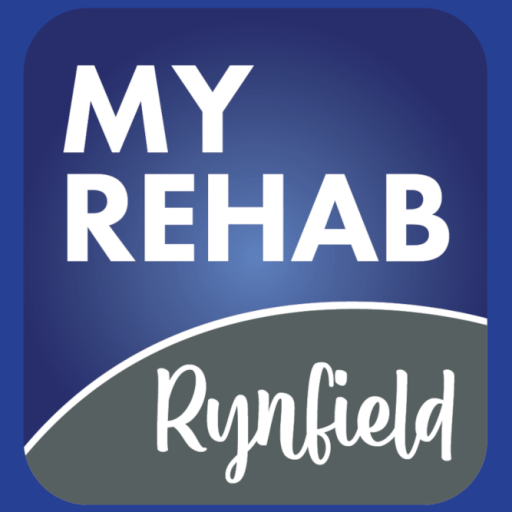
Detox Vs Rehab
Detox Vs Rehab
Detox and rehab are both essential in recovering from substance abuse, but they serve different purposes. Detox focuses on safely managing withdrawal symptoms and eliminating substances from your body. It usually lasts from a few days to a week. On the other hand, rehab is a longer process that addresses the psychological and behavioral aspects of addiction through therapy and support systems. Understanding these differences can help you make informed decisions for your recovery journey. Discover more about their combined benefits ahead.
Understanding Detox: Purpose and Process
Detoxification, often simply called detox, is an indispensable first step in the journey to recovery from substance abuse. It helps your body clear out harmful substances and manage withdrawal symptoms. During detox, you’ll typically undergo a supervised process that includes medical support, ensuring your safety and comfort. This stage can last anywhere from a few days to several weeks, depending on various factors like the substance used and your overall health.
Understanding the purpose of detox is essential; it prepares you both physically and mentally for the next phase of recovery. You’ll start to regain clarity and focus, setting the foundation for lasting change. Embracing this process is critical for paving the way toward a healthier, substance-free life. Additionally, a comprehensive treatment model, which includes evidence-based strategies, will be implemented following detox to support your ongoing recovery journey.
The Role of Rehab in Recovery
While detox lays the groundwork for recovery, rehab plays an essential role in helping you develop the skills needed for a lasting change. During rehab, you’ll engage in therapy sessions that address the underlying issues contributing to your addiction. These sessions help you identify triggers and learn coping mechanisms to manage cravings. You’ll also connect with others who share similar experiences, fostering a support network that’s vital for your journey.
Additionally, rehab often incorporates holistic approaches, such as mindfulness and physical activity, which can enhance your overall well-being. By participating in structured programs, you gain valuable insights and tools that empower you to navigate life after treatment. Ultimately, rehab equips you with the resilience and strategies necessary for sustained recovery.
Key Differences Between Detox and Rehab
Understanding the key differences between detox and rehab is essential for anyone looking to overcome addiction. Detox focuses on safely managing withdrawal symptoms and removing substances from your body. It’s the first step in the recovery process, lasting from a few days to a week, depending on the substance and individual needs. On the other hand, rehab is an extensive treatment program designed to address the psychological and behavioral aspects of addiction. This phase can take weeks or months, encompassing therapy, support groups, and skill-building to help you maintain sobriety. While detox prepares you physically, rehab equips you mentally and emotionally, addressing the root causes of your addiction. Both are important, but they serve distinct purposes in your recovery journey.
When to Choose Detox
Recognizing when to choose detox is essential for anyone struggling with addiction. If you’re dealing with severe withdrawal symptoms, detox is often your first step. It provides a safe space to manage these symptoms under medical supervision. You might also consider detox if you’ve recently increased your substance use or if you’ve relapsed after a period of sobriety. When your body needs to physically rid itself of substances, detox helps you start fresh. Additionally, if you feel overwhelmed by cravings and can’t control your usage, detox can stabilize your condition. Remember, detox isn’t a standalone solution; it prepares you for the next phase of recovery. Knowing when to detox can set you on the right path toward healing.
When to Opt for Rehab
How do you know when it’s time to opt for rehab? If you’ve tried detoxing on your own and find that cravings or withdrawal symptoms are overwhelming, rehab might be your next step. When substance use impacts your daily life—like your job, relationships, or health—it’s a clear sign you need professional help. If you’re experiencing mental health issues like anxiety or depression that seem tied to your substance use, rehab can provide the support you need. Additionally, if you’ve relapsed after detox, a structured environment can help you build coping strategies. Ultimately, choosing rehab is about recognizing that you can’t do it alone and that a supportive community can make a significant difference in your recovery journey.
Combined Approaches: Detox and Rehab Together
After realizing that rehab might be necessary, many individuals find that combining detox with rehab offers a more thorough approach to recovery. This integrated method allows you to first cleanse your body of toxins, easing withdrawal symptoms and preparing you mentally for the challenges ahead. Once detox is complete, shifting into rehab provides the support and tools you need to address underlying issues, develop coping strategies, and learn healthier habits.
Finding the Right Program for Your Needs
What factors should you consider when searching for the right recovery program? Start by evaluating your specific needs, like the type of addiction and any co-occurring mental health issues. Look for programs that offer personalized treatment plans tailored to your situation. Consider the program’s duration and whether it includes detox, therapy, or aftercare services. Check the facility’s accreditation and the qualifications of its staff; a knowledgeable team can make a significant difference in your recovery journey. Additionally, think about the environment—do you prefer a structured setting or a more holistic approach? Finally, consider your budget and whether insurance covers the program. Finding the right fit can set the foundation for successful recovery.
What Are the Costs Associated With Detox and Rehab Programs?
When considering costs, you’ll find detox and rehab programs vary widely. Factors like location, duration, and services offered play a role. It’s crucial to evaluate your options and choose what fits your budget and needs.
How Long Does Detox Typically Last Compared to Rehab?
Detox usually lasts between three to seven days, depending on substances and individual needs. Rehab, however, often extends from a few weeks to several months, providing extensive support for long-term recovery.
Can Detox Be Done at Home or Only in Facilities?
Detox can be done at home, but it’s often safer in a facility. You’ll have medical supervision and support, minimizing risks and potential complications. Weigh your options carefully to guarantee a safe experience.
What Types of Therapies Are Offered in Rehab?
In rehab, you’ll find various therapies like cognitive-behavioral therapy, group sessions, and motivational interviewing. These approaches help you understand your addiction, develop coping skills, and foster support from others facing similar challenges.
Is Insurance Coverage Available for Detox and Rehab Services?
Yes, many insurance plans cover detox and rehab services. You should check your specific policy to understand the details, including coverage limits and any requirements for pre-authorization or in-network providers. It’s important to stay informed.
In your journey to recovery, understanding the difference between detox and rehab is essential. Detox helps you safely manage withdrawal symptoms, while rehab focuses on the psychological aspects of addiction. Depending on your needs, you might choose one or both approaches for an all-encompassing recovery experience. Remember, finding the right program tailored to your situation can greatly impact your success. Don’t hesitate to seek help and take that important step toward a healthier, addiction-free life.
